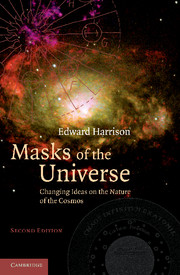Book contents
7 - The Mechanistic Universe
Published online by Cambridge University Press: 27 October 2009
Summary
The telescope, microscope, thermometer, barometer, precision clock, air pump, and other seventeenth-century inventions preceded the Age of Reason in the eighteenth century. The age of enlightened reason commenced with prophets proclaiming visions of a new universe: “I feel engulfed in the infinite immensity of spaces whereof I know nothing and which know nothing of me, I am terrified. … The eternal silence of these infinite spaces alarms me,” said Blaise Pascal. And “behold a universe so immense that I am lost in it. I no longer know where I am. I am just nothing at all. Our world is terrifying in its insignificance,” said Bernard de Fontenelle.
The mechanistic universe of the eighteenth century more than fulfilled the promise of the prophets. Outfitted with laws uniting the Earth and the heavens, with self-running celestial mechanistic systems distributed throughout endless space, with time ticking away regularly as in Huygens's precision pendulum clock, the mechanistic universe opened up the prospect of the human mind able at last to solve all the riddles of nature.
Lofty thoughts that formerly soared among the towers of the Eternal City descended to street level in an exhilarating new Earthly City. Pious otherworldly preoccupations transformed into practical worldly occupations. The reborn world was bright and young, free of the late medieval conviction that all was senile and exhausted. The rejuvenated human sciences, led by “lapsed Christians,” surged forward, achieving reforms that nowadays we take for granted as characteristic of Western society.
- Type
- Chapter
- Information
- Masks of the UniverseChanging Ideas on the Nature of the Cosmos, pp. 101 - 120Publisher: Cambridge University PressPrint publication year: 2003



